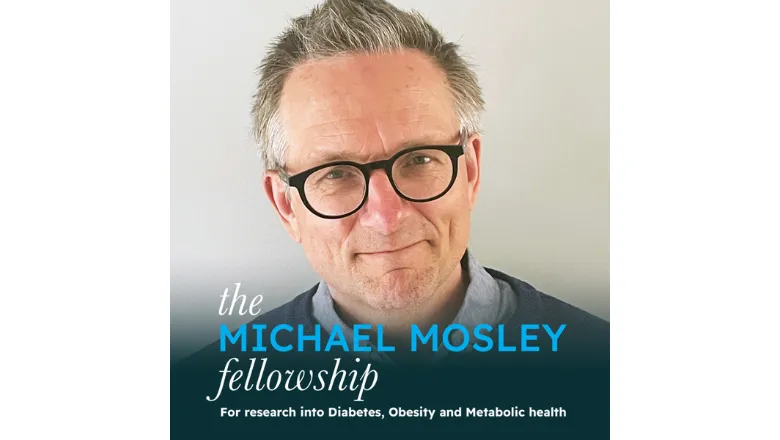
Professor Tim Spector
Professor of Genetic Epidemiology
- Head of Department, Department of Twin Research & Genetic Epidemiology
Contact details
Biography
Tim Spector is a Professor of Genetic Epidemiology at King’s College London and Honorary Consultant Physician at Guy’s and St Thomas’ NHS Foundation Trust. Tim founded TwinsUK in 1992, which is now one of the richest collections of clinical data in the world. He is also an expert in personalised medicine and the gut microbiome. Tim is the lead researcher behind the world’s biggest citizen science health project – the Covid Symptom Study app, for which he was awarded an OBE.
Through his work he has been given many awards and prizes and is a Fellow of the Royal Society of Biology and the Academy of Medical Sciences. He has published over 900 scientific papers and is ranked by Google as being in the top 100 most cited scientists in the world.
He has published four popular books, including the best-selling Diet Myth, Spoon-Fed, and more recently Food for Life – a Sunday Times bestseller. He makes regular appearances in the media.
News
Advancing the future of research into metabolic health in memory of Dr Michael Mosley
To honour the memory of British broadcaster, author and science journalist, Dr Michael Mosley, a new clinical research fellowship will be established to help...

Personalised nutrition more effective than general diet advice
Personalised nutrition approaches can improve several key health metrics including lower weight, lower cholesterol, better mood, improved gut health, lower...

Two teams awarded Cancer Grand Challenges £20m funding
Two teams from King’s have been awarded funding to take on some of cancer’s toughest challenges.

FoLSM researchers featured in 2023 Highly Cited Researcher List
Academics from the Faculty of Life Sciences & Medicine have been named on the annual Highly Cited Researcher 2023 list from Clarivate

Three researchers shortlisted for Cancer Grand Challenges funding
Professor Tim Spector, Dr Sarah Berry and Dr Sheeba Irshad of King’s have been selected for the final stages of Cancer Grand Challenges as part of teams...

BBC One: King's academics highlight impact of ultra-processed food on health
Professor Tim Spector and Dr Sarah Berry from the Faculty of Life Sciences & Medicine have stressed how ultra-processed food can impact on long-term health in...

Scientists identify potential for lifestyle changes to prevent and treat obesity
Weight loss surgery can profoundly reduce the levels of bile acid associated with higher appetite, as can taking fibre supplements but to a lesser degree.

Mediterranean diet benefits patients with advanced Melanoma
Eating a Mediterranean diet, rich in whole grains, nuts, fish and vegetables, is associated with an improved immunotherapy response in patients with melanoma,...

Minorities bore disproportionate mental health impact of pandemic
Racial and ethnic minorities had higher rates of depression and anxiety than white people during the COVID-19 pandemic, new research has found.

Pfizer vaccine reduces the risk of COVID-19 infection in children
A single dose of the Pfizer vaccine reduces the risk of COVID-19 infection in children, new research has found. Data also showed a single dose made infection...

Events

Spoon fed: a webinar with Tim Spector
Five years after the release of his groundbreaking book, The Diet Myth, Professor Tim Spector forces us to rethink our whole relationship with food. Join...
Please note: this event has passed.
Features
Spotlight on nutrition: Research into the impacts of our diets
From beans, to berries to new types of bread, our researchers have been doing a range of work to help us better understand how you are what you eat.

Rosalind Franklin: How her legacy lives on
This weekend, July 25th, marks 100 years since the birth of Rosalind Franklin, one of history’s leading scientists. While working at King’s, Franklin famously...

Why one-size-fits-all diets don't work – new study
The largest nutritional study of its kind delves deep into why a one-size diet does not fit all

King's contributes to pandemic response
Staff and students from across the King’s community are supporting efforts to combat the novel coronavirus (Covid-19) outbreak.

Coronavirus: how to keep your gut microbiome healthy to fight COVID-19
Professor Tim Spector offers advice on some ways you can strengthen your immune system.

Spotlight
ZOE COVID Study app: How King's researchers slowed the spread of COVID-19
On March 24th 2020, the ZOE COVID Symptom Study App was launched. Since then, it has more than 4 million users and is now the world’s largest ongoing study...

Spotlight on COVID: Tracking the symptoms
Professor Tim Spector discusses the new COVID Symptom Tracker app

News
Advancing the future of research into metabolic health in memory of Dr Michael Mosley
To honour the memory of British broadcaster, author and science journalist, Dr Michael Mosley, a new clinical research fellowship will be established to help...

Personalised nutrition more effective than general diet advice
Personalised nutrition approaches can improve several key health metrics including lower weight, lower cholesterol, better mood, improved gut health, lower...

Two teams awarded Cancer Grand Challenges £20m funding
Two teams from King’s have been awarded funding to take on some of cancer’s toughest challenges.

FoLSM researchers featured in 2023 Highly Cited Researcher List
Academics from the Faculty of Life Sciences & Medicine have been named on the annual Highly Cited Researcher 2023 list from Clarivate

Three researchers shortlisted for Cancer Grand Challenges funding
Professor Tim Spector, Dr Sarah Berry and Dr Sheeba Irshad of King’s have been selected for the final stages of Cancer Grand Challenges as part of teams...

BBC One: King's academics highlight impact of ultra-processed food on health
Professor Tim Spector and Dr Sarah Berry from the Faculty of Life Sciences & Medicine have stressed how ultra-processed food can impact on long-term health in...

Scientists identify potential for lifestyle changes to prevent and treat obesity
Weight loss surgery can profoundly reduce the levels of bile acid associated with higher appetite, as can taking fibre supplements but to a lesser degree.

Mediterranean diet benefits patients with advanced Melanoma
Eating a Mediterranean diet, rich in whole grains, nuts, fish and vegetables, is associated with an improved immunotherapy response in patients with melanoma,...

Minorities bore disproportionate mental health impact of pandemic
Racial and ethnic minorities had higher rates of depression and anxiety than white people during the COVID-19 pandemic, new research has found.

Pfizer vaccine reduces the risk of COVID-19 infection in children
A single dose of the Pfizer vaccine reduces the risk of COVID-19 infection in children, new research has found. Data also showed a single dose made infection...

Events

Spoon fed: a webinar with Tim Spector
Five years after the release of his groundbreaking book, The Diet Myth, Professor Tim Spector forces us to rethink our whole relationship with food. Join...
Please note: this event has passed.
Features
Spotlight on nutrition: Research into the impacts of our diets
From beans, to berries to new types of bread, our researchers have been doing a range of work to help us better understand how you are what you eat.

Rosalind Franklin: How her legacy lives on
This weekend, July 25th, marks 100 years since the birth of Rosalind Franklin, one of history’s leading scientists. While working at King’s, Franklin famously...

Why one-size-fits-all diets don't work – new study
The largest nutritional study of its kind delves deep into why a one-size diet does not fit all

King's contributes to pandemic response
Staff and students from across the King’s community are supporting efforts to combat the novel coronavirus (Covid-19) outbreak.

Coronavirus: how to keep your gut microbiome healthy to fight COVID-19
Professor Tim Spector offers advice on some ways you can strengthen your immune system.

Spotlight
ZOE COVID Study app: How King's researchers slowed the spread of COVID-19
On March 24th 2020, the ZOE COVID Symptom Study App was launched. Since then, it has more than 4 million users and is now the world’s largest ongoing study...

Spotlight on COVID: Tracking the symptoms
Professor Tim Spector discusses the new COVID Symptom Tracker app

